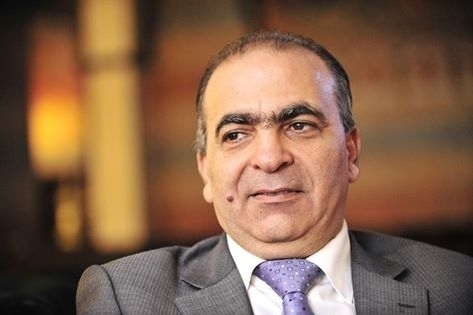After Russia, which he visited a short while ago, the current Turkish president pans to visit Iran after a few days. This was preceded by a visit from Iran’s Foreign Minister, Mohammad Javad Zarif, to Turkey and statements which he made about a Turkish-Iranian rapprochement regarding the Syrian issue as well as another surprise visit carried out by the Turkish Foreign Minister to Iran.
It is clearer than clear that a change has occurred in Turkish policy since Ankara announced Turkey’s rapprochement with Russia and Israel. Many think that Erdogan wants to return to the rule of “zero problems” with all neighboring countries, which formed a basis for Turkish policy before the Syrian crisis. This requires a definite change in Turkish policy toward a group of issues which had caused tension in Turkish relations with neighbors, the most important of which was the Syrian revolution and the current events in Syria.
All attempts to try analyze the results of President Erdogan’s trip to Russia predicted that new relations between the two countries, who are the most influential over the course of events in Syria, would lead to an attempt to reach a joint approach to the Syrian issue and a new mechanism for coordinating their efforts in Syria, while preserving a base of harmonization between the interests of Ankara and Moscow. The clashes that have erupted in Hassakeh between the Kurdish PYD militia and the forces of Assad’s mafia regime may be one of the swift results of this common approach and a first indication of the new understandings between Turkey and Russia, which Iran may not be far from. The regime’s decision to break its alliance with the Syrian branch of the Turkish Kurdistan Workers’ Party and enter into a bloody battle with it requires joint Russian-Iranian agreement. It has become clear that the share of the Damascus tyrant in Syrian decision making is negligible. Meanwhile both Iran and Turkey have similar problems related to the Kurdish question in the region, and the PYD leadership will soon know that they were not and will not be more than another pawn on the Syrian chessboard which could be sacrificed at any moment on the altar of regional and international interests.
The Turkish-Iranian rapprochement which will soon culminate with President Erdogan’s trip to Tehran, and the results which will come out of this trip will make the picture of the Syrian situation clearer. It is well-known that the situation in Syria and its developments are strongly impacted by the relationship that prevails between Iran and Turkey on one hand, and Turkey and Russia on the other. It is also well-known that despite the close military alliance between Russia and Iran, the interests of the two countries do not necessarily correspond. Rather, there could be deep contrasts between them, especially around the influence and ability to control the shape of Syria after the war, and its relations with its neighbors and the world. Israel also has close relations with Russia, and Russia cannot intervene militarily in Syria without its agreement. Its role is also in limiting the possibility of Syria falling under absolute Iranian hegemony, since Iran is a powerful competitor to Israel in the Arab region and its divided and crumbling countries.
Syrians who are still able to think and work outside the regional and international agendas should be aware of what is happening. It is clear that those defending the regime are not defending it because they like Assad’s blue eyes or because they are persuaded that their support for the regime will win the satisfaction of Imam Hussein, peace be upon him, and will get them into heaven on Judgement Day, but because they are exploiting the weakness of the regime and its meagerness and readiness to trade Syria’s independence and the unity of its people and its freedom for remaining in power, even if it is only as a follower or subject of other countries. On the other hand, those who support the Syrian armed opposition do not give this backing to support justice or to win the approval of God. Rather, every sponsor has aims connected to his strategic aims behind this support.
It is not necessary for Syrians to enter into conflict with everyone, but what is required is for the Syrian political elite to define the interests of Syrians first, and then define the interests of every country involved in Syria precisely, and deal with the countries taking these interests into consideration, and choose those best suited to extricating Syria and Syrians from the disaster that is befalling them and threatening their destiny, without any other considerations.
We need to know that after all the blood that has been spilled, and after the frustrating fighting we have entered with those we considered friends or enemies, that the countries and governments and ruling regimes have interests that form the basis of their behavior. We need to specify the interests of every country, friend or foe, in order to address them in the language of interests, far from emotions of any kind — religious, national or humanitarian.
This article was translated and edited by The Syrian Observer. Responsibility for the information and views set out in this article lies entirely with the author.


